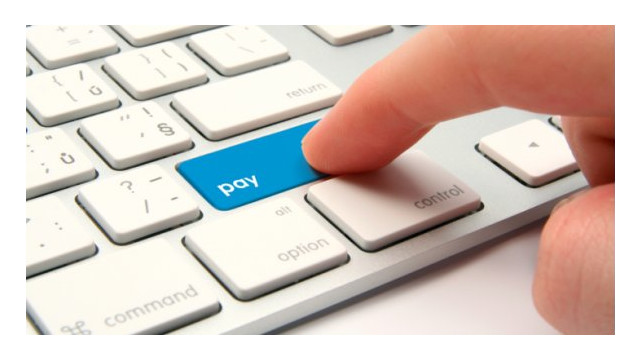The idea of cash float always made sense on paper — companies holding onto their money as long as they could in payment cycles to earn interest and improve cash flow. But now, even with record low interest rates rising – that ship has sailed. The money that might be gained by hanging on to cash today doesn’t amount to much; not to mention the negative effect it has on your suppliers.
While maintaining strong relationships with suppliers should always be a priority, it has never been more important, given current supply chain issues. Suppliers rely on fast access to payments to fund the production and distribution of goods that businesses depend on to deliver for their customers. Not only will prompt payment help suppliers maintain a healthy pipeline, but it can also help enterprises gain favor and become preferred customers.
A better way to optimize cash flow
Fortunately, there is a much more effective approach companies can use to manage cash flow and generate savings: electronic payments, or e-payments. Not only do e-payments give companies new ways to save money, they also improve AP operations and keep suppliers happy.
It’s easy for companies to accelerate digital payment adoption using an AP automation platform. They can offer suppliers a few different methods of payment, including ACH and Virtual Cards, which are processed the same way as traditional credit cards, but offer enhanced security. Additionally, by using payment partners to handle the leg work involved such as onboarding suppliers, determining how they want to be paid, and responding to routine inquiries, companies don’t have to do much to gain the benefits epayments offer.
Given the drawbacks of checks, e-payments are becoming an increasingly popular payment method. Here are eight reasons why businesses are saying goodbye to float and hello to e-payments:
- Controlling payment timing. When companies implement e-payments through an AP automation platform, they have pinpoint control over who to pay, and when. Even though e-payments are faster, companies can determine exactly when the payments are initiated, so they can take advantage of early payment discounts, optimize cash flow, and still pay suppliers on time.
- Efficiencies equal savings. Preparing checks, getting them authorized and signed, and mailed out is a time-consuming and inefficient process for your staff and includes the hard costs of check stock, printer ink, and stamps. All these inefficiencies disappear with AP automation where supplier payments can be made with a simple point and click. E-payments provide efficiencies for suppliers too. With Virtual Card payments, remittance information is included with the payment, providing suppliers with faster and easier reconciliation.
- Valuable Rebates. In addition to reducing processing costs, Virtual Cards also deliver cash rebates. These funds can offset the cost of AP automation, and in some instances, even turn AP from a cost center into a profit center.
- Efficiencies Inside and Outside the Business. Processing efficiencies and the ability to see the status of invoices and payments delivers benefits throughout the enterprise. Treasury can manage cash flow more effectively, and accounting can prepare monthly closes more accurately and quickly. Similarly, suppliers gain visibility into the timing, method, and other details of their payments through a supplier portal, not just for one company, but for all their customers using the platform.
- Greater Security and Peace of Mind. Many enterprises are moving to e-payments because of the added fraud protection it provides. According to the 2021 AFP Payments Fraud and Control Survey Report, 66% of companies relying on checks experienced real or attempted fraud at some point during the year. This contrasts to 34% of companies using ACH, and a mere 3% of those using Virtual Cards. These cards provide heightened security practices through randomized numbers that are authorized for one-time use only.
- Visibility Promotes Continuous Improvement. Automation provides visibility and efficiencies across the entire AP process – from processing invoices, routing for approvals, scheduling payments and confirming payment receipt. AP teams can see for example, if an invoice is hung up waiting for approval and act on it. This visibility is also critical for enabling AP analytics and reporting to optimize processes, reduce administrative costs, and better manage cash flow.
- Speed is the New King. The mantra “cash is king” is sacrosanct, and your suppliers depend on it to keep production flowing. However, the amount suppliers receive is only one part of the equation; when they get it is also key. As you focus on strengthening supplier relationships, keep in mind that speed-to-payment is critical to healthy cash flow, and a key metric that suppliers look at when prioritizing customer delivery.
- Reduce the Headache of Supplier Inquiries. Some payment providers offer a dedicated team to handle supplier inquiries. Not only does that ease the workload of the AP department, it also gives suppliers quick, easy access to someone focused on addressing their inquiries. In addition, some AP automation solutions include portals that give suppliers an easy self-service way to check on payment status for all their customers using that system.
Using float as a money management tool is an outdated and ineffective practice. E-payments are fast becoming the most effective way to not only optimize cash, but also increase the speed, efficiency, security, and even profitability of your supplier payment process. The future of business is digital, and world-class enterprises recognize that e-payments are not only a necessity for the new reality, but also a key competitive advantage.
=======
Mike Railey is Vice President of Payments for MineralTree, a company specializing in AP and payment automation for mid-market and enterprise organizations. In his role, he oversees MineralTree’s payment solutions and operations including supplier enablement and payment support. He also develops and manages strategic partnerships in the payments ecosystem.
Thanks for reading CPA Practice Advisor!
Subscribe Already registered? Log In
Need more information? Read the FAQs
Tags: Benefits




